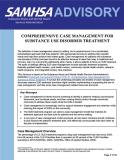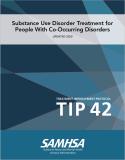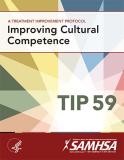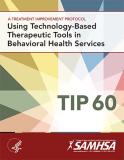
This Advisory is based on TIP 27, Comprehensive Case Management for Substance Abuse Treatment. It surveys the underlying principles and models of case management, discusses reasons substance use disorder (SUD) treatment providers might consider implementing or expanding the use of case management, and lists some case management-related resources and tools.
Units per Product
Download
Advisory: Comprehensive Case Management for Substance Use Disorder Treatment (based on TIP 27)
File Type: PDF
File Size: 425 KB






